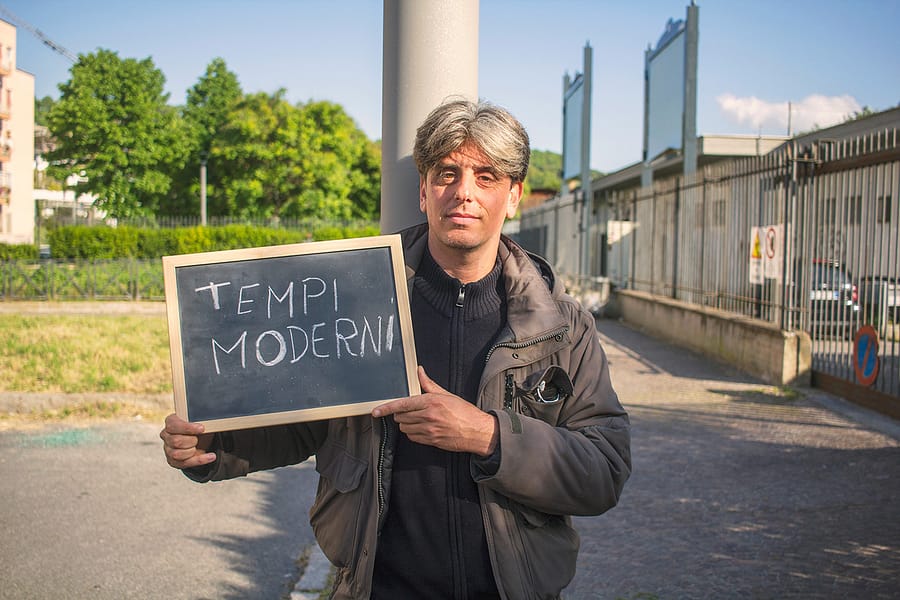
#64 Aureliano (2019)// ©Alessio Trerotoli
Photographer
Alessio Trerotoli
The Story behind the Portrait
Film People is an ongoing project where I try to find out – through their choice of favourite movie – a little piece of someone’s personal story. I believe that we all hold close to ourselves a movie that has marked our memories, which in some way defines us. In this way, I believe that if a portrait can tell a lot about us, then a film we feel connected to can reveal even more. This project, therefore, aims to enable people to tell their story through their choice of significant movie, thus revealing a piece of their soul within that process: as the “book people” in Fahrenheit 451 preserved the memory of the books, similarly my series wants to link every person to the film of their life, as ‘Humans of Cinema’.
Some of the stories that people told me after choosing their favourite movie were incredible. I met Aureliano in Rome, outside a train station not far from the Vatican. We chatted about train departures, he then asked me why I was carrying a small blackboard leading me to explain the project. He was happy to participate and to reveal the link between the movie he chose (Charlie Chaplin’s Modern Times) and his personal story. Aureliano told me at length about his attachment to the film:
“In my best and carefree moments, this film really represents me. I see it every time I travel and I cry every time I see the ending, it makes me think about my life. Me too, like Chaplin’s character, I feel swallowed up by all the superstructures of the society, by its mechanism. People often think about material needs, forgetting who they are and how they are, and they become like those in the opening scene: a flock of sheep.
He continued, “I have often felt caged, I was a nurse and then did other jobs, I had to earn because in the family there were difficult economic situations and nobody could choose his destiny. Even being out of it, however, is scary: Chaplin in the film has the opportunity to go back into society, he tries, but soon he realises that he is no longer part of that mechanism, he is like a broken gear. For me, it’s a positive message: it tells us that we aren’t gears, we are human beings. I really like the ending, it almost seems like he tells everyone to go to hell, taking to the road with his beloved. I’ve lived away from Italy for 9 years, sometimes I return because I still don’t feel totally free to leave society because I have been part of it for so long. At 28, my choice was to leave everything and go away, but then when you have so much freedom you must also know how to manage that because you can discover new things about yourself and sometimes they can scare you and make you feel lost.”
When I heard Aureliano recount in such detail why he chose ‘Tempi Moderni‘, I decided to embark on my series with one clear aim in mind. I realised that the choice of a movie is simply an opportunity to find out the story behind that man or the woman. So far I have collected 148 portraits, all taken in Italy. Within these stories are a range of human experience all revealed through the simple choice of a film that has touched us, just as Charlie Chaplin’s did with Aureliano
“In my best and carefree moments, this film really represents me. I see it every time I travel and I cry every time I see the ending, it makes me think about my life.
Bio
Alessio Trerotoli is an Italian photographer, born and raised in Rome where he still lives. Alessio is a fine art and street photographer and graduated in 2009 in Disciplines of Arts and Cinema. Since 2010, he has shown work in galleries, festivals and art fairs in Italy, the United States, France, Israel, China, Argentina, Australia and Mexico. He is the author of the awarded series Urban Melodies and Raindrop Blues. The Film People project started in 2019 and is ongoing.
Website and Social
www.alessiotrerotoli.com
filmpeopleproject.wordpress.com
